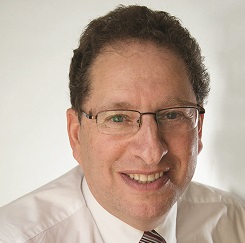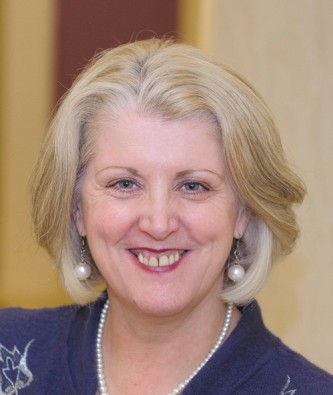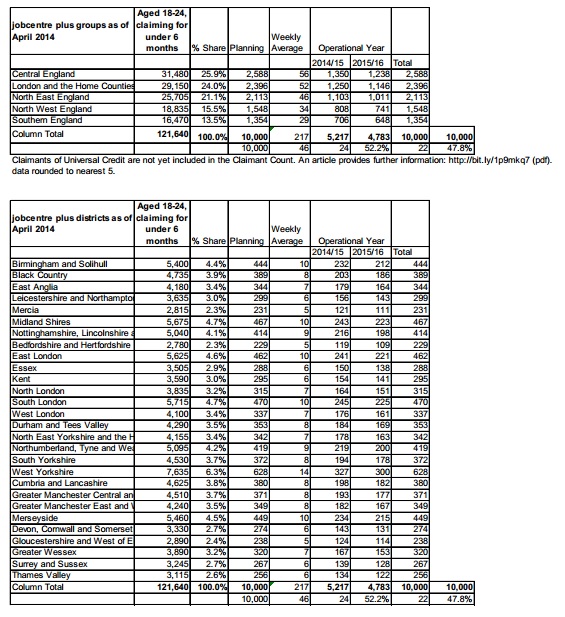Younger apprentices are being hit hardest by minimum wage non-compliance with nearly a quarter not getting the right pay levels last year, a government report has revealed.
The Apprenticeship Pay Survey 2014 indicates that 24 per cent of apprentices aged 16 to 18 and learning at levels two and three were paid less than the apprentice minimum wage, which was £2.68 an-hour at the time of the survey, but rose 5p from October.
The report says: “Younger apprentices were more likely to be earning less than the national minimum wage (NMW), with nearly a quarter (24 per cent) of level two and level three 16 to 18-year-olds having non-compliant pay levels, compared with 20 per cent of 19 to 20-year-olds, 17 per cent of those aged 21 to 24, and 8 per cent of those aged 25 or older.”
Overall, 14 per cent of apprentices of all ages and at all levels were paid less than the minimum wage, down from 29 per cent last year. It also showed that, while 94 per cent of apprentices had heard of the minimum wage and three fifths were aware there was a specific one for apprentices, just 26 per cent said they knew what the rate actually was.
The report also says: “Reducing non-compliance with the is a priority for the government. There are campaigns in place to increase awareness, for example in England the apprentices minister writes to all new apprentices informing them of their NMW entitlement.
“There are resources dedicated to dealing with cases of underpayment, notably the Pay and Work Rights Helpline. More information about the action being taking to reduce levels of non-compliance can be found on the gov.uk website.”
The report, based on 10,000 interviews with level two and three apprentices and 850 level four and five apprentices across England, Scotland and Wales, shows that earnings varied “widely” by framework, with the mean total weekly pay highest among level two and level three apprentices on the management framework (£393) and lowest (at £152) in the hairdressing framework.
It shows that 15 per cent of all level two and three apprentices were paid below the NMW. Non-compliant pay was more common among apprentices in hairdressing (42 per cent), children’s care (26 per cent) and construction (26 per cent).
It also showed that just 26 per cent knew or claimed to know the actual minimum wage rate for apprentices.
Of those surveyed, 36 per cent of 16 to 18-year-olds already worked for their employer before their apprenticeship, increasing to 42 per cent of 19-20 year olds, 64 per cent of 21 to 24 year olds and 93 per cent of those aged 25 or older.
It says 18 per cent of level two and three apprentices who worked overtime were not paid for any of their overtime hours, equivalent to 11 per cent of all those at level two, and the mean number of unpaid overtime hours was 4.6, up from 4.4 in 2012.
In a separate document, the Apprenticeships Evaluation: Learners report, it was also revealed that as many as 30,000 apprentices (4 per cent) had not had not received any formal or informal on or off-the-job training during their contracted working hours.
Live reaction
Federation of Small Businesses (FSB)
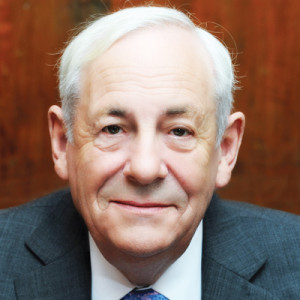 National Chairman John Allan said: “We would like to see apprentices earning more, and we support increases to the apprentice minimum wage to narrow the gap with the youth rate. However, we recognise that this change must happen gradually to minimise the impact on employers. Any sudden rise may leave small firms in particular unable to afford the rate and prevent them from hiring apprentices.
National Chairman John Allan said: “We would like to see apprentices earning more, and we support increases to the apprentice minimum wage to narrow the gap with the youth rate. However, we recognise that this change must happen gradually to minimise the impact on employers. Any sudden rise may leave small firms in particular unable to afford the rate and prevent them from hiring apprentices.
“Over a third of small businesses find the apprenticeship and minimum wage system confusing and the government should do more to improve their understanding. To support businesses and ensure compliance, we would like to see clearer and more accessible guidance that is promoted widely across the business community.”
Confederation of British Industry (CBI)
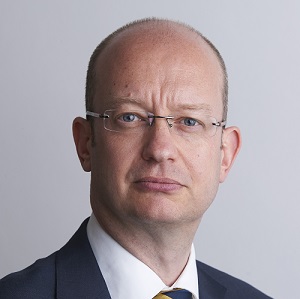 Rob Wall, head of education and employment policy, said: “Apprenticeships are an important way to help young people build the knowledge and practical experience they need to be successful in work and life as well as delivering the skills business needs to be competitive.
Rob Wall, head of education and employment policy, said: “Apprenticeships are an important way to help young people build the knowledge and practical experience they need to be successful in work and life as well as delivering the skills business needs to be competitive.
“The rules setting out the National Minimum Wage apprentices are entitled to are clear. Where this is deliberately ignored businesses should feel the full force of the law.”
Labour Party
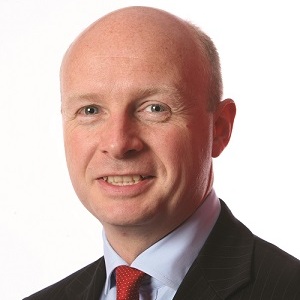 Liam Byrne, shadow minister for skills, said: “These figures show the cold facts behind the government’s warm words on apprenticeships.
Liam Byrne, shadow minister for skills, said: “These figures show the cold facts behind the government’s warm words on apprenticeships.
“Almost a quarter of young apprentices are paid less than the minimum wage.
“This Tory-led coalition lacks a proper plan to build real earn-while-you-learn routes that lead to to decent jobs.”
National Hairdressers’ Federation (NHF)
 Chief executive Hilary Hall said: “The NHF is dismayed by these findings and the poor light it throws onto hairdressing as an industry.
Chief executive Hilary Hall said: “The NHF is dismayed by these findings and the poor light it throws onto hairdressing as an industry.
“We have worked very hard to raise awareness of the NMW rate for all ages, including apprentices, with members and throughout the industry as a whole.
“While the statistics are still unacceptably high, they have improved since the 2012 survey where non-compliance within hairdressing was a staggering 69 per cent.
“In our experience, if salon owners are not paying the NMW, it’s nearly always related to apprenticeships because of age differences.
“The problem for salon owners is that there are not only different rates for under 18s, 18 to 20-year-olds and 21 and over, but different rates again for apprentices which vary depending on whether the learner is under 19 or in their second year of an apprenticeship programme.
“It’s a ‘perfect storm’ for salon owners because they typically take on young people aged 16 or 17, and often they’re doing an apprenticeship as well.
“It means salon owners have to know when their workers have birthdays, especially the birthdays which trigger a change in their payment in rates, and keep track of when apprenticeships are completed.
“And as micro-businesses, salon owners don’t have HR and payroll support in the way that larger businesses do.
“We will continue to warn our members and the wider industry that hairdressing businesses will be specifically targeted by BIS. Paying the NMW is a legal requirement and the consequences of breaking the law will be much tougher with big fines for non-compliance.”
Association of Employment and Learning Providers (AELP)
 Chief executive Stewart Segal said: “AELP has always condemned the payment of wages lower than the apprentice minimum wage but a lot of identified cases can have arisen due to the complexities of the minimum wage framework and issues surrounding the collecting of accurate data. All AELP members work closely with employers to try and ensure that businesses meet the legal requirements.
Chief executive Stewart Segal said: “AELP has always condemned the payment of wages lower than the apprentice minimum wage but a lot of identified cases can have arisen due to the complexities of the minimum wage framework and issues surrounding the collecting of accurate data. All AELP members work closely with employers to try and ensure that businesses meet the legal requirements.
“We would welcome an increase in the minimum apprentice wage but we would understand if a small differential was maintained between the apprentice rate and the national minimum wage.
“The publication by BIS of this latest data is welcome following its encouraging research findings last week on the labour market returns from gaining an apprenticeship.
“Given that the average hourly wage paid to a level two or three apprentice is nearly £4 above the minimum apprentice rate in the first year and that the first year average is higher than the overall national minimum wage, these figures expose as a myth that apprentices are being exploited.
“It’s interesting to note too in the context of perceived low pay professions that apprentices at levels two and three in the hospitality and retail sectors are earning on average above £6.85 an hour which is higher than the NMW.
“And overall, the average pay for apprentices aged under 21 compares very reasonably with the national minimum wage rates for the younger age groups while apprentices are also benefiting from a high quality training programme that can significantly enhance their career prospects.
“Today’s data doesn’t show separate figures for levels two and two, but last week’s BIS research showed a 11.5 per cent employment premium return for level two apprentices and in our view, opinion-formers should think twice when they see both sets of findings before advocating that apprenticeships should be only at level three and above, especially when level two apprenticeships are providing sustainable employment for many young people.
“Opinion-formers should bear in mind as well that CBI is a backer of intermediate apprenticeships.”
Trades Union Congress (TUC)
 General secretary Frances O’Grady said: “The report exposes some shocking abuse, with many apprentices being paid less than the legal minimum. It’s particularly bad in sectors where more women work, such as hairdressing where more than a third of apprentices are underpaid, and childcare where a quarter are underpaid.
General secretary Frances O’Grady said: “The report exposes some shocking abuse, with many apprentices being paid less than the legal minimum. It’s particularly bad in sectors where more women work, such as hairdressing where more than a third of apprentices are underpaid, and childcare where a quarter are underpaid.
“Younger apprentices are the most likely to be treated badly, with nearly a quarter of them paid below the minimum wage.
“Some employers may be making genuine mistakes, but there are worrying signs that some apprentices are simply being exploited as cheap labour. Apprentices are a real asset to employers and deserve to be properly valued.
“The TUC strongly supports quality apprenticeships and is concerned that such widespread abuse of minimum wage rules might put young people off from fear of exploitation.
“The government must make apprenticeships a priority for minimum wage enforcement action and should withdraw training funding from employers caught cheating their apprentices out of pay.
“Enforcement would be made easier to achieve if the rules for apprenticeship minimum wages were simplified and increased to the same level as for other young workers.”
Department for Business, Innovation and Skills (with Q&A)
 A spokesperson said: “Apprenticeships offer people the chance to get the skills they need to make a success of their careers and participate productively in the country’s workforce. The government announced the two millionth apprenticeship start in this Parliament just last week.
A spokesperson said: “Apprenticeships offer people the chance to get the skills they need to make a success of their careers and participate productively in the country’s workforce. The government announced the two millionth apprenticeship start in this Parliament just last week.
“With the economy on the road to recovery, all workers – including apprentices – should be able to share in the proceeds of growth. The Business Secretary Vince Cable has written to the Low Pay Commission outlining proposals to simplify and boost the national minimum wage for apprentices. Based on the current national minimum wage rates for 16 to 17-year-olds, the proposal would give around 31,000 apprentices in the first year of their programme a pay rise of more than £1 an hour, rising from £2.73 to £3.79 per hour.
“The government is cracking down on employers who break the law by not paying the minimum wage. We are naming and shaming offenders and increasing penalties. Any apprentice who believes they are not getting the minimum wage that they are legally entitled to should contact the Pay and Work Rights Helpline on 0800 917 2368 to get free confidential advice.”
Q&A
Why does BIS not currently name and shame apprentice minimum wage non-compliers, and does it plan to change that policy?
“We have named employers who have failed to comply with the apprentice minimum wage – but we are not able to specify where that non-compliance relates to an apprentice.
“The Notice of Underpayment issued to an employer by HMRC following the identification of underpayments of the NMW does not differentiate between underpayments to workers and apprentices.
“It is therefore not possible to provide information on the number of employers who have faced a penalty for non-payment of the apprentice NMW since March 2014, as HMRC do not hold this information.”
How does BIS respond to the fact non-compliance is higher than average in hairdressing (42 per cent), and children’s care (26 per cent)?
“We have asked the Low Pay Commission to simplify the apprentice NMW rates, the current complexity is one of the key factors we believe causes non-compliance
“HMRC are about to begin a campaign solely focusing on hairdressing, which will include guidance and enforcement.
“We will be using the results of this survey to inform our sector-specific work at BIS– ensuring that we focus on those sectors where compliance is most problematic. This proactive work will range from awareness raising and promoting compliance, to targeted enforcement work.”
Can you respond on the fact younger apprentices were more likely to be earning less than the NMW?
“We know that there are a number of reasons for non-compliance with the NMW in relation to apprentices – including mistakes made by employers in relation to how the apprentice NMW rate applies and employers not paying the minimum wage for time the apprentice spends training.
“We are taking steps to improve compliance and will use the evidence provided in this report to build on our understanding.”
National Union of Students (NUS)
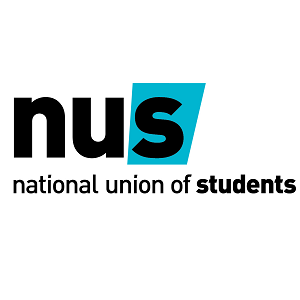 An NUS spokesperson said: “These figures are unacceptable. We’ve long known that apprenticeships are fantastic for businesses, personal careers and creating opportunities for both employers and apprentices, but unfortunately the fact is that vocational study and apprenticeships still aren’t viewed with the same esteem as other routes of education.
An NUS spokesperson said: “These figures are unacceptable. We’ve long known that apprenticeships are fantastic for businesses, personal careers and creating opportunities for both employers and apprentices, but unfortunately the fact is that vocational study and apprenticeships still aren’t viewed with the same esteem as other routes of education.
“These figures also confirm what we have been saying all along about the gendering of poverty pay – traditionally male apprenticeships such as engineering have better wages, more classroom time, and more on the job training than traditionally female apprenticeships, such as hairdressing and childcare positions. The very best apprenticeships are doing what they can to combat this, but this kind of quality should be standard practice, not a luxury for the lucky ones.
“The low wages paid to apprentices stack up problems in other areas of their lives too. They have little disposable income and let’s not forget that many have to pay to travel to work or training. Apprentices pay an average of £24 on travel, with many paying significantly more. We’ve heard stories where apprentices are only paid for the four days they are in work but not for their off the job training. How can anyone expect to live a decent life on such a low income?
“We need more than just naming and shaming. We need a clampdown on those who are choosing to exploit hardworking young people trying to get their foot on the career ladder.”
National Institute of Adult Continuing Education (Niace)
 Chief executive David Hughes said: “These figures are a cause for concern, especially as the government is now putting more power into the hands of employers. It’s wrong that apprentices aren’t even being paid the minimum apprentice wage.
Chief executive David Hughes said: “These figures are a cause for concern, especially as the government is now putting more power into the hands of employers. It’s wrong that apprentices aren’t even being paid the minimum apprentice wage.
“While there is cross-party agreement that apprenticeships are the answer to youth unemployment, today’s figures clearly show that for many apprentices, the quality of the Apprenticeship is clearly not what it should be.
“This is why, in our manifesto, we have called for the introduction of an apprentice charter.
“This will be a clear commitment from employers that their apprentices are given the best possible experience, providing them with a solid foundation – not just for their current role – but for the rest of their career.”
The Association of Colleges declined to comment.

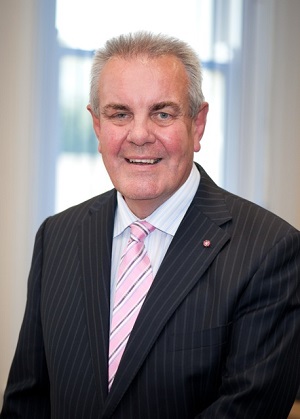
 National Chairman John Allan said: “We would like to see apprentices earning more, and we support increases to the apprentice minimum wage to narrow the gap with the youth rate. However, we recognise that this change must happen gradually to minimise the impact on employers. Any sudden rise may leave small firms in particular unable to afford the rate and prevent them from hiring apprentices.
National Chairman John Allan said: “We would like to see apprentices earning more, and we support increases to the apprentice minimum wage to narrow the gap with the youth rate. However, we recognise that this change must happen gradually to minimise the impact on employers. Any sudden rise may leave small firms in particular unable to afford the rate and prevent them from hiring apprentices. Rob Wall, head of education and employment policy, said: “Apprenticeships are an important way to help young people build the knowledge and practical experience they need to be successful in work and life as well as delivering the skills business needs to be competitive.
Rob Wall, head of education and employment policy, said: “Apprenticeships are an important way to help young people build the knowledge and practical experience they need to be successful in work and life as well as delivering the skills business needs to be competitive. Liam Byrne, shadow minister for skills, said: “These figures show the cold facts behind the government’s warm words on apprenticeships.
Liam Byrne, shadow minister for skills, said: “These figures show the cold facts behind the government’s warm words on apprenticeships. Chief executive Hilary Hall said: “The NHF is dismayed by these findings and the poor light it throws onto hairdressing as an industry.
Chief executive Hilary Hall said: “The NHF is dismayed by these findings and the poor light it throws onto hairdressing as an industry. Chief executive Stewart Segal said: “AELP has always condemned the payment of wages lower than the apprentice minimum wage but a lot of identified cases can have arisen due to the complexities of the minimum wage framework and issues surrounding the collecting of accurate data. All AELP members work closely with employers to try and ensure that businesses meet the legal requirements.
Chief executive Stewart Segal said: “AELP has always condemned the payment of wages lower than the apprentice minimum wage but a lot of identified cases can have arisen due to the complexities of the minimum wage framework and issues surrounding the collecting of accurate data. All AELP members work closely with employers to try and ensure that businesses meet the legal requirements. General secretary Frances O’Grady said: “The report exposes some shocking abuse, with many apprentices being paid less than the legal minimum. It’s particularly bad in sectors where more women work, such as hairdressing where more than a third of apprentices are underpaid, and childcare where a quarter are underpaid.
General secretary Frances O’Grady said: “The report exposes some shocking abuse, with many apprentices being paid less than the legal minimum. It’s particularly bad in sectors where more women work, such as hairdressing where more than a third of apprentices are underpaid, and childcare where a quarter are underpaid. A spokesperson said: “Apprenticeships offer people the chance to get the skills they need to make a success of their careers and participate productively in the country’s workforce. The government announced the two millionth apprenticeship start in this Parliament just last week.
A spokesperson said: “Apprenticeships offer people the chance to get the skills they need to make a success of their careers and participate productively in the country’s workforce. The government announced the two millionth apprenticeship start in this Parliament just last week. An NUS spokesperson said: “These figures are unacceptable. We’ve long known that apprenticeships are fantastic for businesses, personal careers and creating opportunities for both employers and apprentices, but unfortunately the fact is that vocational study and apprenticeships still aren’t viewed with the same esteem as other routes of education.
An NUS spokesperson said: “These figures are unacceptable. We’ve long known that apprenticeships are fantastic for businesses, personal careers and creating opportunities for both employers and apprentices, but unfortunately the fact is that vocational study and apprenticeships still aren’t viewed with the same esteem as other routes of education. Chief executive David Hughes said: “These figures are a cause for concern, especially as the government is now putting more power into the hands of employers. It’s wrong that apprentices aren’t even being paid the minimum apprentice wage.
Chief executive David Hughes said: “These figures are a cause for concern, especially as the government is now putting more power into the hands of employers. It’s wrong that apprentices aren’t even being paid the minimum apprentice wage.

